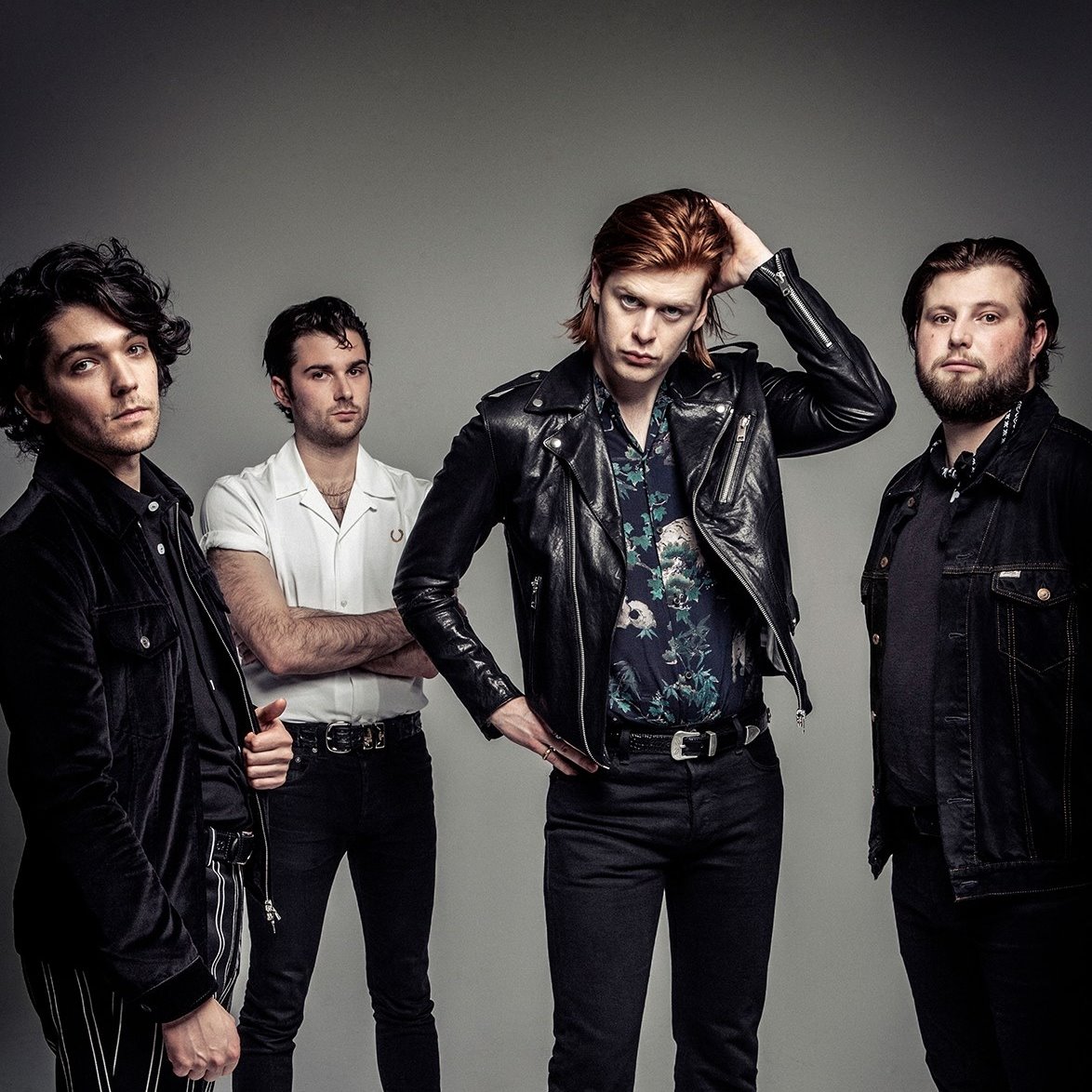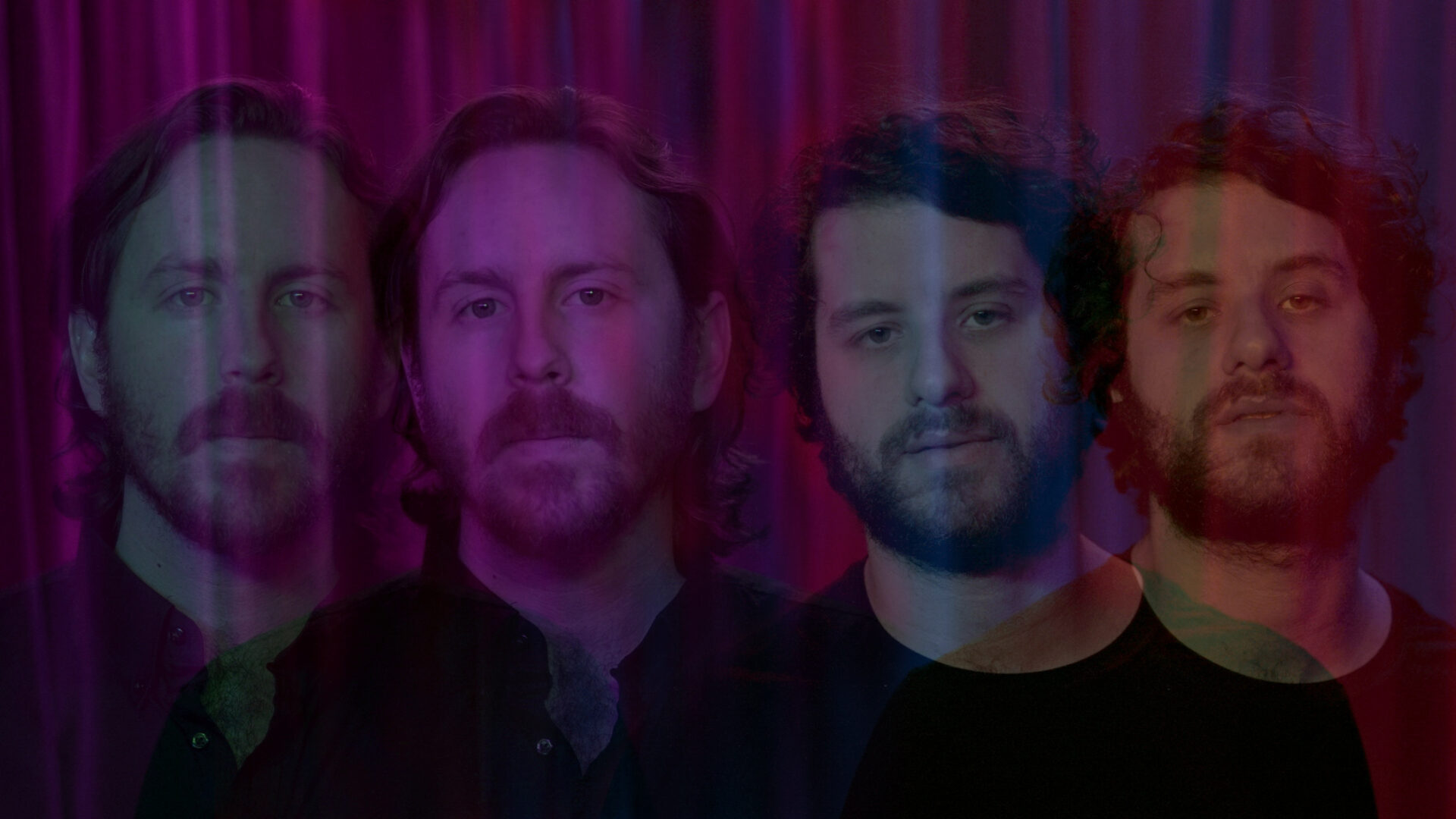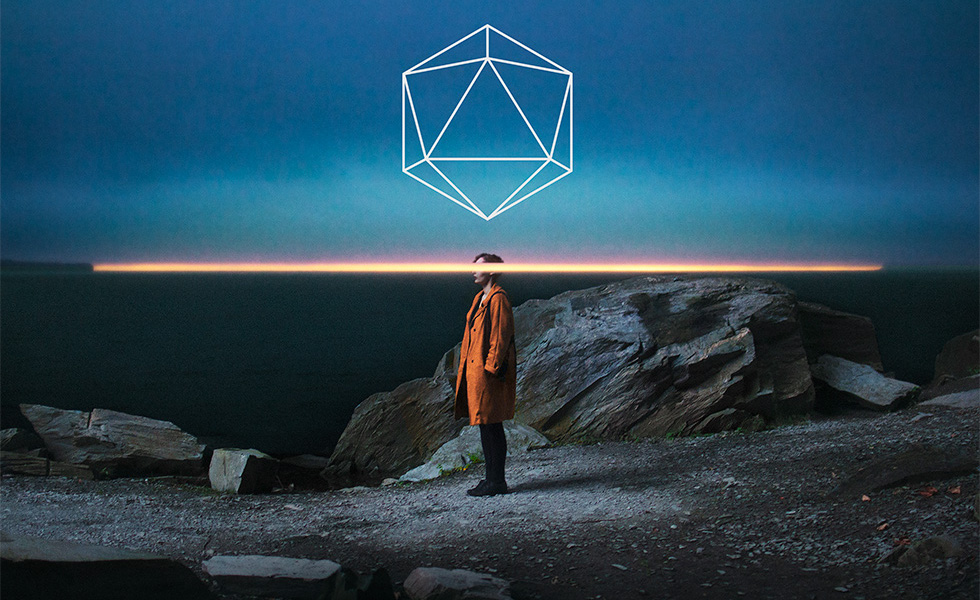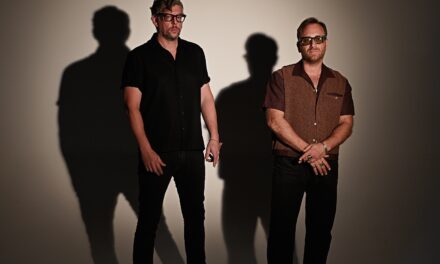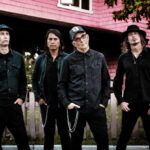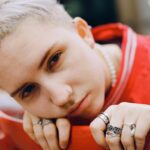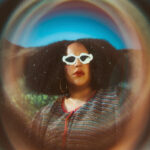“Mother,” the first track off of British rock band The Amazons’s sophomore album, Future Dust builds with anticipation like an incoming storm on a shore. There’s distortion, a heavy drum beat that leads you into a tunnel of guitars within a heavy riff. While on tour supporting their self-titled album, there was a craving for more within the band, to draw from the inspirations from the past of rock and roll into a meatier and darker tone sound.
This doesn’t mean forgetting the styling of the indie rock from their debut, but to draw from their edgier potential in songs like “Black Magic.” It’s interesting how you can draw from the foundations of the past to show you were you should go.
Now, with their second album in tow, The Amazons are ready to introduce you to the band that they were building to be all along. Heavier riffs, blues influences, and a real sense of direction permeate throughout this album. A testament to a band with more confidence and something to say. We caught up with lead singer/guitarist Matt Thomson to talk about the new album, their new sense of direction and influences that went into making Future Dust, and more.
Two years ago, you guys released your self-titled album. While the band was touring, the inspiration of changing your sound to a more rock-driven esthetic starting started to come into play. What about touring and about that process inspired you to go towards a harder edge?
We kinda flirted with that with songs of the first album. “Black Magic” and “In My Mind” are a couple that come to mind. Those were some of the songs that were written for the album in quite a long process. The first record was kind of a collection and accumulation of songs written over a four year period. Before The Amazons even came together. Some of the album had mostly a British-indie feel to it, but our heads by the end of recording the album were in the harder, darker side of things.
That kind of carried on to the touring. In the 18 months that we were out on the road, the songs that we enjoyed playing were the evil ones like “Black Magic.” It felt natural coming off that tour knowing what we liked and we enjoyed doing. It made us excited. Expanding from there, it wasn’t a conscious change. It was more a conscious evolution in that we could smell blood. That we could do some great stuff carrying on in that evolution.
It definitely didn’t feel natural doing more of the indie pop kind of numbers from the first record. It kind of got boring, but it felt right to arrive to the sound and sonics of Future Dust.
I know that the band listened to a lot of Howlin’ Wolf during the making of this album. You personally referenced reading Hellfire, which is the Jerry Lee Lewis biography. It goes back to a time where rock and roll seemed more edgy and maybe had a rebel feel to it. There’s a lot of that energy in Future Dust. Do you feel that this album is a reflection of how perhaps today’s rock and roll is missing that energy a bit?
Kind of. I think if I just said “yeah,” it wouldn’t be telling the whole story. I think it definitely was something that we were interested in. The early roots of rock and roll and even before that with the blues. It kind of seeped into our consciousness over the past couple of years and manifested itself about 18 months ago. It came from different influences and friends.
A person who was a big influence to us was our guitarist’s girlfriend, Dani Spragg, who is a recording engineer. She has an encyclopedic knowledge of music like Buddy Holly, Elvis, and Eddie Cochran. She’s really into that stuff, so she turned us on to that music. Especially with the blues stuff, we were really getting into music that we listened to in our formative years. Basically our parents’ catalog of stuff. Everything from Springstreen, but more specifically, Led Zeppelin, Fleetwood Mac, and The Rolling Stones.
With the power of the internet and the resources that are available with a click of a finger, we started asking ourselves questions. Why were these bands so vital? Why were they so important? Why were they so good? Why don’t we see these figures like a Jimmie Page or an Eric Clapton today? One of the ways we were thinking upon addressing that was to figure out what they were listening to. They were on a real diet of Muddy Waters and Howlin’ Wolf.
Being from England, it’s harder to get to those older type of records like reissues, so the internet played such an amazing part through streaming and YouTube. The more we learn about rock and roll and the more we felt in love with the genre, the more you realize you don’t know shit. It’s all about capturing the essence and spirit of it. The rawness and the unfiltered characters that these people were. There was a time before rock and roll was a career aspiration. This writing and recording process felt like a first step that we probably didn’t have recording our first album.
Going off of that, the band worked with producer Catherine Marks again. How did it feel working together on Future Dust as opposed to the self-titled album. From what I understand, she really pushed you guys on this album.
With the first record, we loved working with Catherine and it was an amazing experience, but it always felt like there was unfinished business. We all stayed friends and hung out in the interim between the two records. It just felt natural. She had went on and achieved a lot of peaks and we felt like we were way better musicians this time around with something to say.
It was a couple of phone calls. “Ok, this is what we want to do. This is what we’ve been listening to.” She was so on board with it. We all went into it like “we’re both upcoming. Let’s make something special out of it.” A breakthrough for her and for us. Whether that happens or not, it’s not up to us. The hard work is done. At least we tried to do that and take risks.
She pushed us harder this time around because we all know one another and I think there was a little bit more conflict. When you don’t know someone as well, you kind of chill out and let them have space. When you know someone really well, you find it a lot easier to disagree with them. That felt like a theme on this record. There were a lot of disagreements with Catherine, but it ultimately worked out. We have so much respect for her. We weren’t trying to produce own record. It’s just that we questioned every decision that we were making. I’m sure that pissed her off, but we came out with a better record than the first, so fuck it.
I like that “Mother” was not only the first single, but the first song on the album. It’s a powerful reintroduction and statement. How important was it for this song to be the gateway to the new phase?
I think that we had that penciled in as the first single for a while. Even from the first demo. We were asking ourselves, “can we top it?” I would say that there are better songs on the album, but there’s not one with that type of presence. We were always aware of that and wanted something that brooded at the start. We gave it this broken-down drum intro and feedback. There’s this anticipation that builds until you hit the riff 40 seconds in.
Especially, lyrically as well, it sums up a lot of the record. There’s a kind of defiance to it and reflecting a lot of experiences in the last 18 months. There’s a wider view on the world. Lyrically, it was inspired by a Son House song called “Grinnin in Your Face” that I found through YouTube and Jack White describing his favorite songs of all time. I thought, “well, if it’s Jack White, then I have to give this a listen.” I was taken aback by the rawness and science of it.
I didn’t actually feel like the lyricism of that song, even though it was written in the ’40s-50s hasn’t changed. You can certainly apply them to now. Just slightly different circumstances. You can’t ignore those riffs. We wanted to really show people that we were a rock band. It was really important for us to shed that indie tag. That kind of bothered us a bit. Genres may not be as important now as they were then. When you call us ‘indie,’ you lump us with some bands that we really don’t associate with and don’t listen to. ‘Mother’ is a hard, dark rock record.
You were going through some of your old notebooks and found the riff to “Mother.” It’s a cool thing when artists can go back to some older ideas and bring them into a new space. How was drawing older inspiration into this new identity?
Most of our songs are kind of like that. There are a couple on this record that were done in one go. “25” was done in as many minutes as you can listen to the song. That’s the beauty of being able to record so much stuff. I’ve got folders upon folders on a hard drive of stuff that I like, but sometimes you just have to grow into it. You write something, but the band has to grow into it.
That riff was very early on and almost more simple and dark at the time. We were looking at different starting points, essentially. It was the beat even over the riff that really got me. I kind of associate it with bhangra music. There were some stuff that we worked on that was in the first album sessions that lead to the second.
The message of the song I found interesting. With the age of social media, we have tended to be less forgiving. There is less room for error. The song draws parallels to a mother where you can do a lot of things, but a mother’s love will always be there. Was that your sort of critique in writing the lyrics?
A little bit. I just feel like there isn’t a huge amount of space to make mistakes. I find it worrying when people dig up a tweet from ten years in the past. They can’t fathom the nuance of changing their beliefs and changing their way of thinking about things through ten years of experience. How are your beliefs and what you think is right and wrong not formed by experience?
I think the outrage culture transcends social media. Just in the media looking for quick clicks. Click bait. Whipping up storms for the sake of it. Controversy for the sake of it. It’s just not healthy. I don’t have the answers to remedy it. If I said “just stop it,” that would be impractical. Once the box is open, it’s open. You just have to work how to manage it.
I didn’t want to write a song about just social media because it’s a hard subject to get into one song. The internet and social media aren’t entirely good, but they aren’t entirely bad either. It reflects humans in a way that we are a bit of everything. It unlocks sides of human beings that probably shouldn’t be unlocked. No fear of consequences for being a bastard. A lot of righteousness, and not a lot of empathy. We all make mistakes, but some people may forget that when they are within the realm of judging. I just think that everybody should chill out.
“25” appears twice on the album. One iteration towards the front and back of the track list. Just listening to both of these songs, as you just turned 25, I felt like you were trying to figure things out. It’s what your 20s are for, constructing and deconstructing. Musically, both of the songs are different as well.
It started of very organic and instinctive. I love rock and roll when it’s instinctive. I’m sitting in the bedroom now where I wrote the first verse and chorus. I came into the practice room the next day and showed it to the guys. I played them a couple of other tunes, but then I said, “well, I got this. It’s kind of weird, dark, and folky.” We’re all really big Iggy Pop fans, so we through that type of beat on that. Then we did the drums and the bass filled in.
The motif of the guitar that plays after the first chorus, that was literally from the first jam. A lot of the songs on the album could take a long time because I can bring in some chords or piano. But the way we arrange them, the possibilities are endless. With this song, everyone seemed to know what to do. That energy went into the recording. It goes into live as well.
It was only going to be that. There was never going to be a reprise. I wrote loads and loads of lyrics for it. I wanted to get the lyrics right, so I thought the best way to do it was to write verses upon verses. Wrap up lines and different lyrics for the chorus. Catherine was like “it’s such a fun song. Don’t make it too bleak or depressing!” I really liked the lines “there’ll be gnashing/there’ll be biting.” As we said in the beginning, I was reading Hellfire and there’s a dense sort of religious imagery in it.
I thought that we could do an acoustic reprise. In the studio that we were recording in, there was this old pump organ. We also had a mandolin that we wanted to use. We jammed it out right at the end. We had run out of time. We had did it at 5 a.m. when Catherine went to bed because she really wanted to have the record finished. We got the engineer, Cecil, on our side and it’s kind of one of the more favorite things to me that we’ve done. To me, it sounds like the fucking apocalypse. It’s like this dark, spiritual alter ego of the first track.

